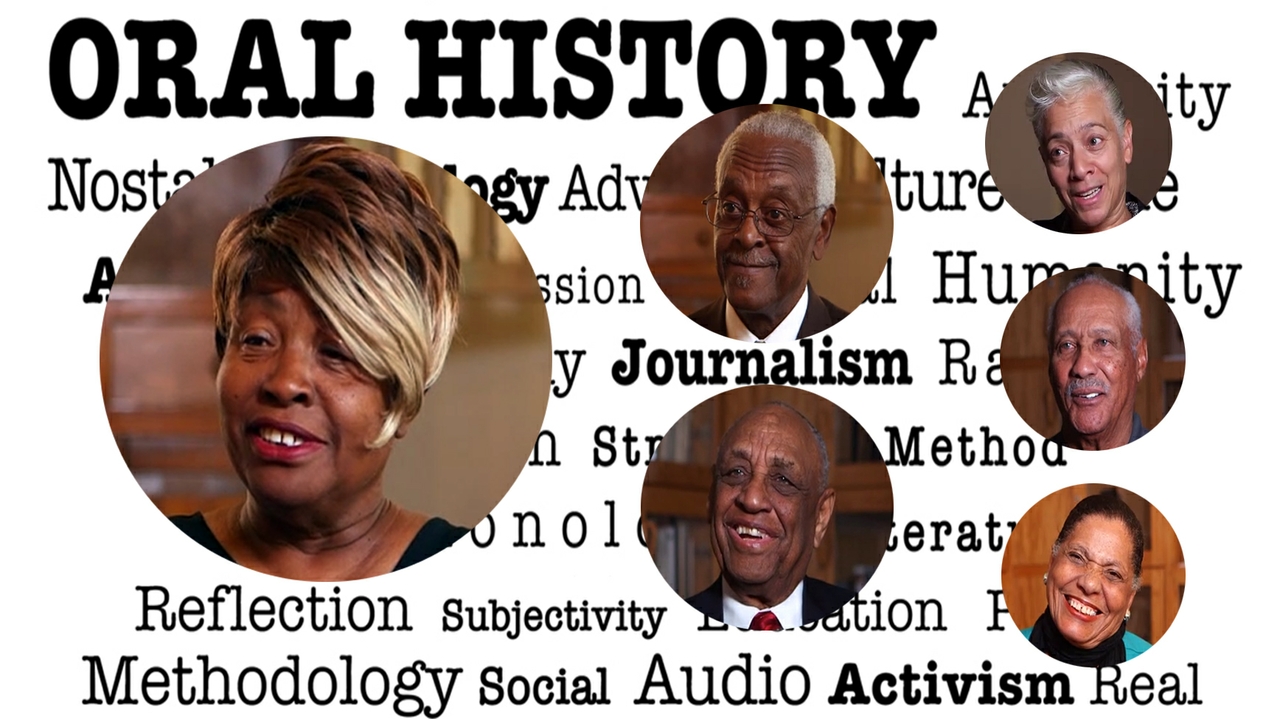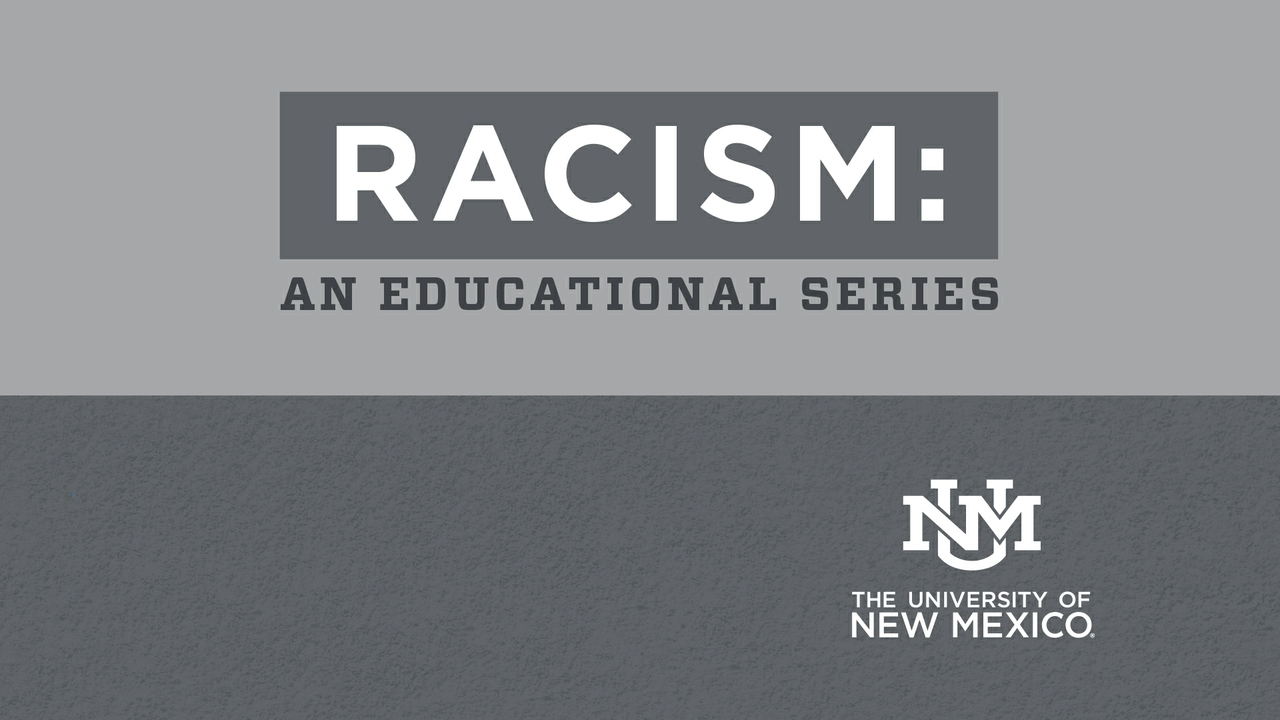As the state’s flagship university, The University of New Mexico takes pride in being a “community of unique perspectives embracing divergence, letting the very things that divide us become the things that connect us to each other. What makes us different makes us strong – and a force to be reckoned with.”
Today, more than 27,000 Lobos make up the identity and fuel the heartbeat of the University to ensure boundaries are always pushed, questions don’t go unanswered and the future is better for the students that come after them.
"Young people want change now. We’re talking about this history from 40 to 50 years ago, who wants to wait another day?” - Harold Bailey, NAACP Albuquerque Branch president
In the ‘60s and ‘70s, a group of Black students did just that, raising their voices and advocating civil rights to help pave the way for thousands of future Lobos. Decades later, in 2016, 10 alumni gathered to candidly share their memories, appreciation, hardships, and experiences that helped shape UNM into the university it is today.
The effort is called The UNM Black Alumni Chapter Oral History Project, spearheaded by UNM alumna Barbara Brown Simmons.
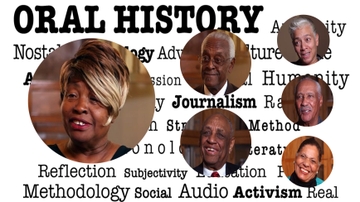
Brown Simmons orchestrated the project in conjunction with the UNM Black Alumni Chapter and African American Student Services. With the assistance of The University of New Mexico Oral History Program and funding by The University of New Mexico Center for Regional Studies 10 oral history interviews were recorded on video. Those interviewed are members of the UNM Black Alumni Chapter.
Each account details the individual’s life from adolescence to adulthood – living through the Civil Rights movement and their time as a student at UNM. The interviewees openly discuss personal life experiences with racism and their push to fight racial injustice on a local and national level.
Marsha Hardeman, who teaches within UNM’s Africana Studies, facilitated each interview. She said she previosuly worked with nearly every person included in the project, allowing participants to feel comfortable sharing, sometimes tough personal experiences.
“The time on set, with every one of these iconic figures in the history of the University and New Mexico, at large, seemed to just fly by,” Hardeman said. “Hopefully, others who view the oral histories, for years to come, will be as engaged and fascinated by these stories of hope and promise as I was in drawing from them these precious testimonies of the power of Black people's persistence and giftedness. What a special investment for the future of our children and community at large.”
The 10 interviewees include:
- Angela J. Jewell, retired District Court judge
- Barbara Brown Simmons, former criminal defense attorney, and co-founder and current president of the UNM Alumni Association Black Alumni Chapter.
- Rev. Charles Becknell Sr., Ph.D. in American Studies, pastor of Emmanuel Missionary Baptist Church.
- Charles P. Roberts, former UNM dean of students.
- Harold Bailey, Ph.D. in American Studies, former executive director of New Mexico Office of African American Affairs.
- Ira L. Harge, New Mexico Sports Hall of Fame, UNM Lobo, and NBA draft basketball player.
- James B. Lewis, State Treasurer of New Mexico from 1985-1990 and from 2006-2014.
- Lenton Malry, Ph.D., Albuquerque's first Black school principal in 1964. First Black elected State Representative in 1968. Bernalillo county's first Black county commissioner in 1980.
- Rita Ann Turfley Powdrell, Director of the Board of the African American Museum & Cultural Center. Owner at Mr. Powdrell's Barbecue House.
- Tommie Jewell Sr., retired educator.
Student life during the Civil Rights Era
A retired district court judge, Angela Jewell, is the oldest of nine siblings. Growing up her father served in the U.S. Air Force, which dictated the next state they lived in and the next military base the family called home. Due to her father’s time in the military, Jewell described her childhood as being somewhat “sheltered from the segregation” that was ongoing around the nation. Jewell said, as a child, the only form of segregation she felt she experienced was isolation because there were so few Black families living on military bases.
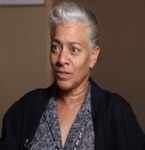
She earned a Juris Doctorate from UNM in 1979 and served as a special commissioner for the Second Judicial District’s Domestic Relations and Domestic Violence Division before being elected the first Black female judge on the District Court.
During her years at UNM, Jewell participated in her first public demonstration – standing up against inequalities facing university athletes. During her interview, she discussed her fond memories of UNM, the growth that paved the way for so many students.
“Those were really nice years. I enjoyed the classes and established a really good background in African American literature,” she said. “It was interesting – the evolution of African American studies, for those of us going to school at the time, because we got to be part of history. UNM was vastly different than it is now. You could look around and see two-or-three Black students and now you look around and there is more and in many different fields.”
Each participant echoed the importance of education and the different avenues it opened along their paths. James B. Lewis graduated from UNM in 1977 with a master’s degree in Public Administration. He served as state treasurer for more than 13 years.
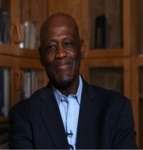
Lewis described his decision to run for public office as a young Black man in Albuquerque, and the discouragement he encountered from the Black community when he thought about running for public office.
“My concern is that if we still have these shackles on our wrists, shackles around our brains and if we’re telling our kids and poisoning them with limitations – I’ve been told all my life that if you get a good education and have good work experience you can ascend to become anything you want to be, so that was the driver for me when people told me, ‘Well, it’s never been done,’” Lewis said.
Brown Simmons, who earned her bachelor’s degree from UNM in 1969 and her Juris Doctorate in 1974, was the first Black woman to graduate from the UNM School of Law. She’s also the co-founder of the UNM Alumni Association Black Alumni Chapter.
She was born in Texas in 1947 and was 6 years old in 1953 when the U.S. Supreme Court ruled that separating children in public schools based on race was unconstitutional in Brown v. Board of Education. During her interview, Brown Simmons recalled her first year in school – in the basement of a building where white children attended school.
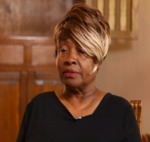
“It was only years later that I realized how brave my father was. Every morning, he would get out of the car, walk down the sidewalk to the basement, and he would watch me go down the steps. Then, he would turn around and go back to his car. But what I also noticed is crowds of white people on each side of the sidewalk saying things to him,” she said, “Later, I found out there was objects thrown at him. While we were down in the basement, we could hear the white children walking above us. It was really dark; we could barely see. They had a white teach come down. We would color and write little things; she didn’t teach us anything.”
Amarillo, Texas is where Brown Simmons said she learned to be “Black and proud” – embracing her culture and every opportunity to excel within the education system.
“Our Black teachers taught us that education is invaluable,” she said. “We were forced to be good students. Forced to do our homework and forced to be the best that we could.”
Years later, Brown Simmons and her family would move to Albuquerque where she graduated from Valley High School and began her college career at UNM.
“When I got to UNM I noticed there was nothing for us. Nothing culturally. Nothing socially. Nothing in the classroom, other than a handful of Black students,” she said.
Amid the Civil Rights movement, Brown Simmons said Black students on campus started to talk about forming a Black Student Union. She still remembers the group’s first meeting, Dec. 1, 1967.
“We were down in the Student Union Building (SUB) and the topic of the meeting was, 'What should we be called?' Negros, Blacks, African Americans? At the time, being called ‘Black’ had a negative connotation,” she said. “What we did know is our basic purpose was for racial equality – to eliminate racism at UNM and be included in all levels of the university experience.”
The fight for equality at UNM would continue years later.
Student-Athlete Boycott of 1974
In 1974, student-athletes boycotted racial inequality at UNM. Those contributions have made an impact on the university’s athletic programs and continue to inspire student-athletes to fight toward racial equity in college athletics.
In the video below, UNM football player Cedric Patterson III spoke with former Lobos Harold Bailey and Ron Wallace to discuss the significance of the 1974 UNM student-athlete boycott.
Bailey, who is the president of the NAACP Albuquerque Branch, left viewers with this, “We had strong community support then and the student-athletes knew they had that support, and it was a concerted effort to bring about positive change,” he said. “That’s why we have to make sure the University of New Mexico and in particular Black Students keep that connection with the surrounding Black community … Young people want change now. We’re talking about this history from 40 to 50 years ago, who wants to wait another day?”
A sentiment Hardeman can relate to with her students.
"The person who has the power of the pen and tells the story, writes the history," Hardeman said. "For too long, Black people (and women) have not had the privilege or power to tell our own stories, but, these, too, are historic accounts. Black history is American history, and I love unveiling the rich treasure-troves of our histories. Always."
Special thank you to Barbara Brown Simmons for the creation of The UNM Black Alumni Chapter Oral History Project that remains an invaluable piece of The University’s story, and to UNM Athletics for its participation and contribution to Racism: An Educational Series.
_______________________________________________________________________
Racism: An Educational Series (previous stories)
- Two steps forward, one step back: Where do we go from here? - August 21
- Racism in Healthcare - August 14
- Black student excellence springs from historic inequalities - August 7
- The complicated history of environmental racism - August 4
- Recognizing anti-blackness in media and other institutions - July 31
- Transformative education as the key to dismantling racism - July 24
- Addressing new forms of racism Part II: Preventing Microaggressions - July 21
- Addressing new forms of racism Part I: Defining Microaggressions - July 17
- Identifying, understanding and combatting complex inequality - July 10
- Conversation with the Becknells: Careers, Racism and Black Lives Matter - July 3
- Meaning Behind the Movement: Black Lives Matter - June 26
- Learning from the Past: A Brief Historical Background - June 19
